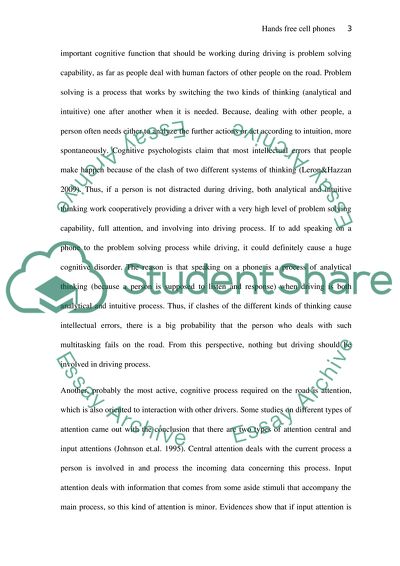Cite this document
(Hands-Free Cell Phones on the Road Report Example | Topics and Well Written Essays - 1250 words, n.d.)
Hands-Free Cell Phones on the Road Report Example | Topics and Well Written Essays - 1250 words. https://studentshare.org/psychology/1857581-write-a-1500-word-report-as-a-cognitive-psychologist-which-can-be-used-to-influence-policy-scenario-1-use-of-hands-free-phones-in-cars
Hands-Free Cell Phones on the Road Report Example | Topics and Well Written Essays - 1250 words. https://studentshare.org/psychology/1857581-write-a-1500-word-report-as-a-cognitive-psychologist-which-can-be-used-to-influence-policy-scenario-1-use-of-hands-free-phones-in-cars
(Hands-Free Cell Phones on the Road Report Example | Topics and Well Written Essays - 1250 Words)
Hands-Free Cell Phones on the Road Report Example | Topics and Well Written Essays - 1250 Words. https://studentshare.org/psychology/1857581-write-a-1500-word-report-as-a-cognitive-psychologist-which-can-be-used-to-influence-policy-scenario-1-use-of-hands-free-phones-in-cars.
Hands-Free Cell Phones on the Road Report Example | Topics and Well Written Essays - 1250 Words. https://studentshare.org/psychology/1857581-write-a-1500-word-report-as-a-cognitive-psychologist-which-can-be-used-to-influence-policy-scenario-1-use-of-hands-free-phones-in-cars.
“Hands-Free Cell Phones on the Road Report Example | Topics and Well Written Essays - 1250 Words”. https://studentshare.org/psychology/1857581-write-a-1500-word-report-as-a-cognitive-psychologist-which-can-be-used-to-influence-policy-scenario-1-use-of-hands-free-phones-in-cars.


